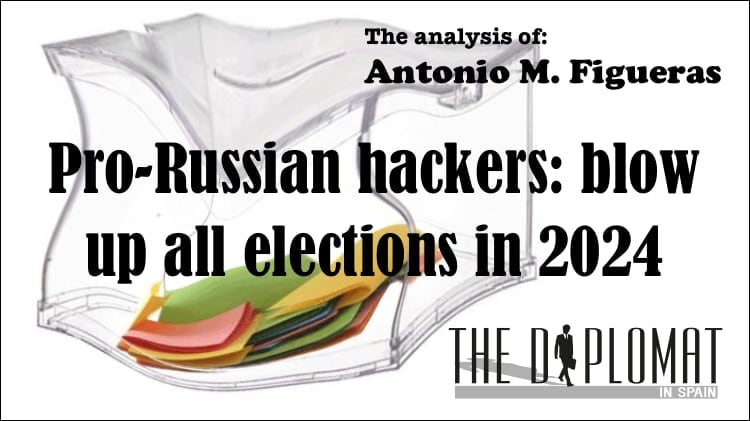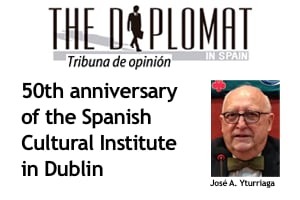Yencken and Caldwell’s tombs, at the British Cemetery in Madrid./ Photo: A.R.
Alberto Rubio. Madrid.
A diplomat and a pilot lie side by side in the British Cemetery in Madrid. Under an unforgiving sun, one would barely glance at the worn tombstones if it weren’t for the fact that their date of death is the same: 18 May 1944. There was still one year to go before the end of the Second World War in Europe. 70 years later, the mystery continues.
Arthur Yencken, minister at the British Embassy in Madrid, Hilary Charles Caldwell, RAF squadron leader, keep to themselves, six feet underground, the details of a story worthy of James Bond: the failed attempt to rescue British prisoners of war recently arrived in Barcelona.
It was not the first time that British diplomats in Spain attempted to “extract” from their captors British soldiers who were usually being taken to Miranda de Ebro (Burgos), in an increasingly undesirable collaboration between Franco’s Government and the authorities of the third Reich. The Gestapo controlled the camp there from 1941 to, at least, 1943, when it was home to 3,500 foreign combatants, taken prisoner by the Germans.
In order to free selected prisoners, the British embassy used false medical certificates. Once they managed to gain custody of the “sick”, they were taken to one of the safe-houses, held by a network of British collaborators, Margaret Taylor and Walter Starkie, among others, in Madrid. Once they had been debriefed, the prisoners were provided with false passports and moved, to Gibraltar or Lisbon, from where they were repatriated to the United Kingdom.
Yencken and Caldwell died on their way to Barcelona to free British prisoners
That 18 May, Yencken and Caldwell –of whom it is known only that he was designated as an attaché to the RAF only a little earlier and that this was to be his first flight to Spain – boarded the plane that the Embassy used for its staff’s journeys around the country. The meteorological conditions were not good, but both were experienced pilots. However, they never reached their destination; Barcelona.
Accident, as was stated in the report presented to the House of Commons, or sabotage, as told by Spanish journalist, Luis Díez’s book “Hitler’s Last Crime in Spain”? Given the sensitive mission, nothing can be ruled out.
The truth is that Yencken’s aircraft crashed half way. The bodies of its two occupants were returned to Madrid, where the British diplomat was honoured with an impressive funeral. His coffin was paraded down the Gran Vía (then known as Avenida José Antonio) with a military escort expressly authorised by Franco.
There is more. A great number of people attended the funeral mass, most of them Spaniards who “probably wished to be seen as anglophiles”, given the turn the war was taking at this stage.
Arthur Yencken, holder of the Military Cross and companion of the Most Distinguished Order of Saint Michael and Saint George, went down in history, in the eyes of many Spaniards, as nothing more than an obscure British diplomat killed in an unknown mission.
They did not know, probably, that years before he had given cover to many other undercover actions, such as Operation Goldeneye. ¿Does it ring a bell? Ian Fleming, the author of James Bond, had a lot to do with it. That, though, is another story. The next one.
.










